#claire croiza
Photo
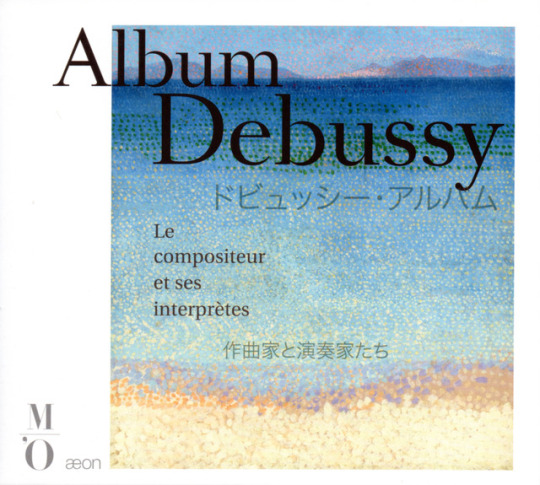
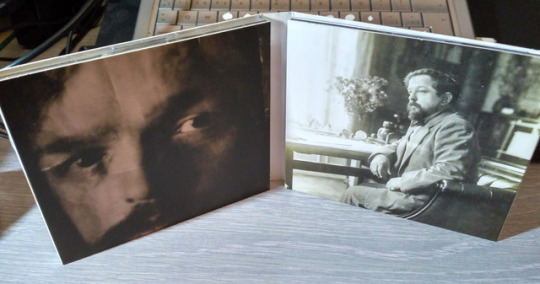
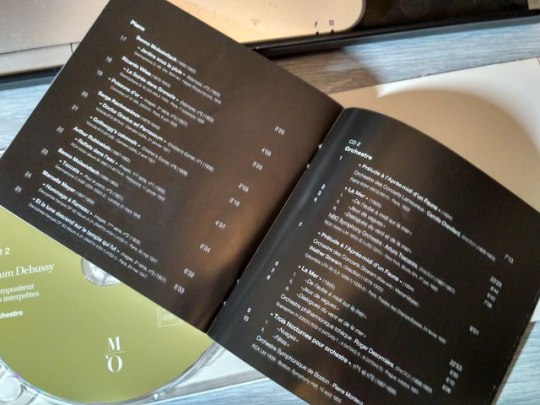
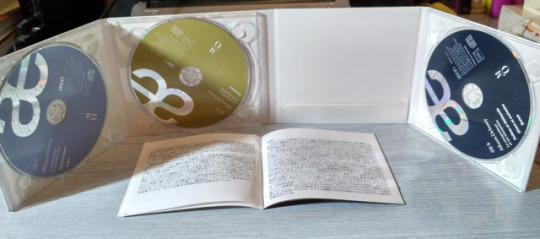
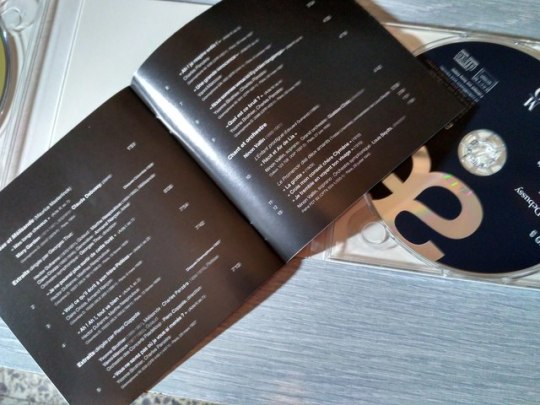
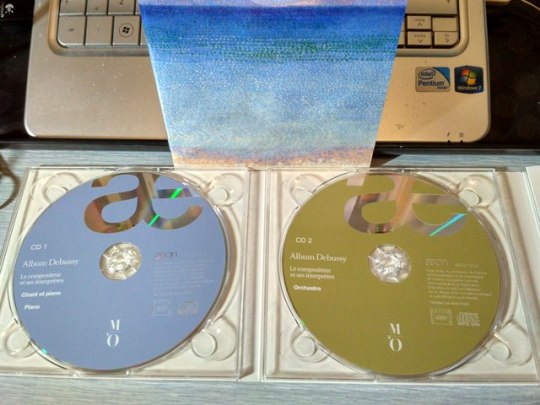
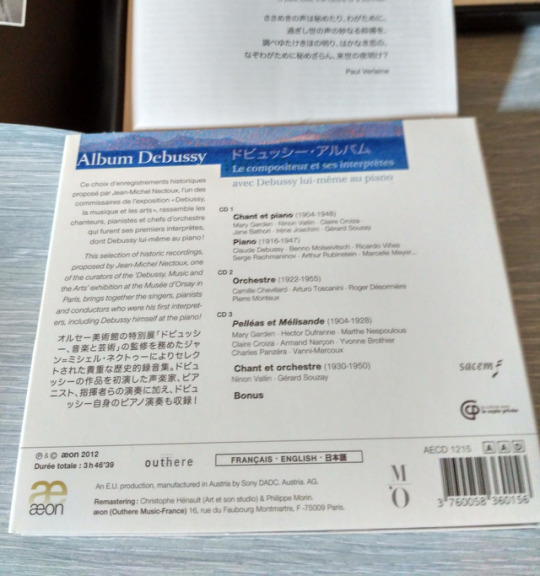
La música que suena yo no la oigo.
#claude debussy#mary garden#ninon valli#gustave cloëz#claire croiza#ivana meedintiano#george reeves#jane bathori#irène joachim#gérard souzay#jacqueline bopnneau#benno moïsevitsch#ricardo viñes#serge rachmáninov#arthur rubinstein#marcelle meyer#orchesdtre des concerts lamoureux#camille chevillard#nbc symphony orchestra#arturo toscanini#orchestre des concerts straram#walther straram#orchestra philharmonique tchéque#roger desormière#orchestre symphonique du boston#pierre monteux#hector dufrane#marthe nespoulous#armand narçon#georges truc
0 notes
Text
September 14 in Music History
1722 Birth of composer Joseph Paul Ziegler.
1731 J.S. Bach begins organ recitals in Dresden.
1737 Birth of Austrian composer Johann Michael Haydn.
1748 Birth of composer Johann Paul Schulthesius.
1760 Birth of Italian composer Maria Luigi Carlo Zenobio Salvatore Cherubini.
1761 Birth of composer Pavel Lambert Masek.
1768 Birth of composer Georg Johann Schinn.
1772 FP of Jommelli: "Cerere placata" Naples.
1833 Death of Irish composer and organist John Andrew Stephenson.
1839 Birth of Czech composer Johann Nepomuk Kral.
1840 Birth of composer George Elbridge Whiting.
1851 Birth of French pianist and composer Gabrielle Ferrari in Paris.
1866 Birth of New Zealand composer Mentor Crosse in Dunedin.
1869 Birth of American soprano Ellen Beach-Yaw, in Boston, MA.
1876 Birth of baritone Ernesto Badini.
1882 Birth of composer Harald Fryklof.
1882 Birth of Belgian mezzo-soprano Clair Croiza.
1885 Birth of Italian opera conductor Vittorio Gui, in Rome.
1885 Birth of American tenor Charles Marshall, in Waterville, ME.
1887 Birth of Polish violinist Paul Kochanski in Warsaw.
1891 Birth of Polish soprano Ada Nordenova.
1896 Birth of Mexican tenor José Mojica, in Mexico City DF.
1904 Birth of German composer Richard Mohaupt in Breslau.
1910 Birth of Swiss composer Rolf Liebermann, in Zurich.
1910 Birth of American composer, conductor Lehman Engel.
1911 Birth of American mezzo-soprano Alice Tully.
1914 Birth of composer Michael Spisak.
1917 Birth of Swiss conductor and violinist Rudolf Baumgartner in Zurich.
1919 Birth of composer Deryck Victor Cooke.
1922 Birth of English conductor and composer Michael Howard.
1926 Birth of composer and conductor Richard Elsasser.
1936 Death of pianist composer Ossip Gabrilowitsch in Detroit.
1937 Birth of American composer Joseph Jarman.
1942 Birth of composer Kuldar Sink.
1944 Birth of English tenor Martyn Hill in Kent.
1950 Birth of Argentinian tenor Raul Gimenez in Santa Fe, Argentina.
1951 Birth of Brazilian composer Arrigo Barnabé in Londrina.
1952 FP of Frank Martin's Concerto for Harpsichord, in Venice.
1954 FP of Benjamin Britten's opera The Turn of the Screw, at the Teatro La Fenice in Venice.
1962 Death of French composer Marcel Francois Delannoy in Nantes.
1964 Death of American composer and pianist Mary Howe in Washington.
1965 Birth of American composer Shawn Patterson in Athol, MA.
1968 Birth of Belgian composer Vincent Ghadimi in Rocourt.
1978 FP of Samuel Barber's Third Essay for Orchestra by NY Philharmonic under Zubin Mehta.
1994 FP of Richard Danielpour's Cello Concerto, by San Francisco Symphony, conducted by Herbert Blomstedt. Yo-Yo Ma, soloist in San Francisco, CA.
1997 FP of Kaija Saariaho's Graal Théâtre for chamber ensemble, by the Avanti Ensemble and violinist John Storgards, in Helsinki.
2000 Death of Spanish tenor Carlo Del Monte.
2002 FP of David Amram's Flute Concerto Giants of the Night. Louisiana Philharmonic conducted by Klauspeter Seibel, with James Galway the soloist in New Orleans, LA.
2 notes
·
View notes
Text
Les XX and Pierre de Bréville (French, 1861-1949)
#LesXX and Pierre de Bréville (French, 1861-1949)
Les XX and Société Nationale de Musique Pierre de Bréville (French, 1861-1949) - Sonate en ré bémol - Marie-Catherine Girod
https://youtu.be/fZLuJWTtsPw
Pierre Onfroy de Bréville (21 February 1861 – 24 September 1949) was a French composer.
Pierre de Bréville was born in Bar-le-Duc, Meuse. Following the wishes of his parents, he studied law with the goal of becoming a diplomat. However, he abandoned his plans after a few years and entered the Conservatoire de Paris. He began his musical studies with Théodore Dubois (1880–1882), later taking courses under the direction of César Franck.
He became a professor, teaching counterpoint at the Schola Cantorum in Paris (1898–1902). Following a twelve-year break, he taught classes in chamber music composition at the Conservatoire de Paris (1914–1918).
He established himself as a music critic and became well known for his reviews and commentary in Mercure de France, Le Courrier musical and La Revue blanche. He died in Paris.
Although de Bréville was not prolific, he lavished attention to his own compositions, producing several highly original works remembered for their quality. He also completed the orchestration of César Franck's unfinished opera Ghiselle with Vincent d'Indyand Ernest Chausson.
Selected compositions[edit]
Stage
L'anneau de Çakuntala (The Ring of Shakuntala), Incidental Music for the play Abhijñānaśākuntalam by Kālidāsa
Le Pays des fées, Incidental Music
La Princesse Maleine, Opera
Les Sept Princesses (The Seven Princesses), Incidental Music
Éros vainqueur (Eros, Conqueror), Lyric Opera in 3 acts, 4 scenes (1905); libretto by Jean Lorrain; first performance 7 March 1910, Théâtre de la Monnaie, Brussels(with Claire Croiza in the title role)
Les Egyptiens, Ballet, an overture to a piece by Maurice Maeterlinck
Orchestral works
La Nuit de décembre
Stamboul, Orchestral Suite
Concertante
Tête de Kenwark, Scène lyrique for cello and orchestra after a dramatic poem by Leconte de Lisle
Chamber music
Sonata No.1 in C♯ minor for violin and piano (1918–1919)
Une flûte dans les vergers for flute and piano (1920)
Pièce for oboe (or flute, or violin) and piano (1923)
Poème dramatique for cello and piano (1924)
Prière (D'après le Cantique de Molière) for cello and organ (or piano) (1924)
Sonatina for oboe (or flute, or violin) and piano (1925)
Sonata No.2 "Sonate fantaisie en forme de rondeau" for violin and piano (1927)
Sonata in D minor for cello and piano (1930)
Fantaisie appassionata for cello and piano (1934)
Sonata for violin and piano (1942)
Sonata for violin and piano (1943)
Sonata for viola and piano (1944)
Concert à trois for violin, cello, and piano (1945)
Sonata for violin and piano (1947)
Fantaisie for guitar
Trio à cordes
Trio d'anches
Organ
Suite brève for organ (or harmonium) (1896)
Prélude, méditation et prière for organ without pedals (1912)
Deuxième suite brève en cinq parties for organ (or harmonium) (1922)
Piano
Fantaisie: Introduction, fugue et finale (c.1900)
Portraits de maîtres (Portraits of Masters) (1907)
Gabriel Fauré
Vincent d'Indy
Ernest Chausson
César Franck
Impromptu et choral (1912)
Stamboul: rhythmes et chansons d'Orient, 4 Pieces (1921)
Prélude et fugue (1923)
Sonate en ré bémol (Sonata in D♭) (1923)
Sept esquisses (7 Sketches) (1926)
Quatre sonates (1939)
Fantasia appassionata
Vocal
La forêt charmée for voice and piano (1891); words by Jean Moréas
Epitaphe for voice and piano (1899); words taken from the tombstone of Marie Dupuis in the "Église de Senan"
Le Furet du bois joli for voice and piano (1899); words by Jean Bénédict
Poèmes de Jean Lorrain mis en musique (Poems of Jean Lorrain Set to Music) (1899?)
La mort des lys
La belle au bois
La petite Ilse
Quatre mélodies pour voix moyennes (Four Songs for Medium Voice) with piano accompaniment (1912)
Une jeune fille parle; words by Jean Moréas
Venise marine; words by Henri de Régnier
Berceuse; words by Henri de Régnier
Sous les arches de roses; words by Charles van Lerberghe
Héros, je vous salue for voice and piano (1916); words by Henri de Régnier
France for voice and piano (1917); words by Henri de Régnier
Sainte for voice and piano (1922); words by Stéphane Mallarmé
Bonjour mon cœur for voice and piano (1925); words by Pierre de Ronsard
La Terre les eaux va buvant for voice and piano (1925); words by Pierre de Ronsard
Ô mon ange gardien for voice and piano (1925); words by Francis Jammes
Baiser for voice and piano (1926); words by Émile Cottinet
Cantique de 1ère communion for soprano, violin and organ (or piano) (1926); words by Henry Gauthier-Villars
La Cloche fêlée for voice and piano (1926); words by Charles Baudelaire
12 Rondels de Charles d'Orléans for voice and piano (1930); words by Charles d'Orléans
Bernadette
La Petite Ilse
Cœur ardent
L'Heure mystique
Choral
Hymne à Venus, Vocal duo or chorus in 2 parts in phrygian mode (c.1885); words by Auguste Villiers de l'Isle-Adam
Messe (Mass) for soprano, tenor, baritone, mixed chorus (STB), string quartet, harp and organ (1890s)
Sainte Rose de Lima, Scène mystique for soprano, female chorus and orchestra (1890s); words by Félix Naquet
Tantum ergo sacramentum veneremur cernui, Hymne au Saint Sacrement for mezzo-soprano, female chorus and organ (c.1900)
Les Cèdres du Liban (Cedars of Lebanon) for mixed chorus a cappella
Motets pour la messe des morts
Salut for soloists, female chorus and organ or harmonium
Writings[edit]
Les Fioretti du père Franck, (1935–1938), a biography of César Franck
Une histoire du théâtre lyrique en France
https://en.wikipedia.org/wiki/Pierre_de_Bréville
Artist Biography by Uncle Dave Lewis
French composer Pierre de Bréville originally prepared to take a law degree in order to join the diplomatic corps and please his parents, but changed his mind and went into music instead. Brévillestudied at the Conservatoire with Theodore Dubois, but was most significantly impacted by his later studies with César Franck and considered himself among Franck's "circle." Bréville traveled to Bayreuth alongside Debussy and Fauré in 1888 and made the acquaintance of Vincent d'Indy there, met with Liszt somewhat earlier, and was acquainted with Edvard Grieg. A trip to Constantinople in the early 1890s accounts for a certain "Orientalist" strain found in Bréville's music, particularly as exemplified in the symphonic poem Stamboul (1895). Bréville remained close friends with d'Indy, who named him to his first teaching position at the Schola Cantorum in 1898; together they worked along with other members of the "Bande de Franck" to complete Franck's unfinished opera Ghisèle.
Bréville was best known in his lifetime as a teacher and critic; he wrote for Mercure de France and other publications throughout his career and taught at both the Paris Conservatoire and the Schola Cantorum; he succeeded d'Indy as head of the Société Nationale de Musique. Bréville also wrote a significant memoir of Franck, Les Fioretti du père Franck, which appeared in serialized form in Mercure de France between 1935 and 1938. As to his compositions, Bréville considered the opera Eros vainqueur, completed in 1905, to be his most important achievement; it was not given in a full-scale production until 1932, but an early concert performance presented in 1910 featured soprano Claire Croiza, who also championed Bréville's songs and other works. Bréville's worklist is geared in the main toward vocal music, and his songs -- mainly the earliest ones from the 1880s and '90s -- gained the greatest amount of traction among any of his works during his lifetime. In addition to the songs, Bréville composed another unfinished opera St. François d'Assise, incidental music for plays, an overture and a handful of symphonic poems, sacred and secular music for chorus, chamber music (including five sonatas for violin and piano; the first (1918) being exceptionally important), and works for piano and organ; his last completed piece, in 1946, was a saxophone quartet. Stylistically, Brévillemoved from Franckian post-romanticism to a mildly impressionist idiom, but little of Bréville's music has been heard since his death in Paris at the age of 88.
https://www.allmusic.com/artist/pierre-de-breville-mn0001623473/biography
Pierre de Bréville (French, 1861-1949) - Harmonie Du Soir (Baudelaire)
https://youtu.be/rMJ2bUodA6I
Claire Croiza, Pierre de Breville: "Une jeune fille parle"
https://youtu.be/3X1DgCgAj5k
LES XX
http://www.worldlibrary.in/articles/eng/Les_XX
1891
Stéphane Mallarmé gave a lecture on Auguste Villiers de l'Isle-Adam; Edmond Picard discusses Maurice Maeterlinck, Emile Verhaeren and Charles Van Lerberghe.[13]
Three concerts were given, with the first centered on Belgian composers like Auguste Dupont, Léon Soubre, Joseph Jacob, Paul Gilson and Gustave Huberti.[3] The second and third concert focused on the French composers, with works by Fauré, Franck, d'Indy, and Castillon in the second concert. Vincent d'Indyperformed his Symphonie Cévenole in the third concert.[19] Other composers whose work was performed were Fauré, Franck, Bréville, Bordes, Chausson, Albéric Magnard and Paul Vidal.[3]
Exhibits by invited artists including Odilon Redon,[14] Paul Cézanne,[2] Paul Signac, Henri de Toulouse-Lautrec,[7] Alfred Sisley, Paul Gauguin and Vincent van Gogh.[13] Durint the 1890 expo was sold the only painting Vincent van Gogh sold during his lifetime.[18]
1890
In July, Les XX had an exhibition in Amsterdam, The Netherlands.[11]
At the first concert, the music was composed by César Franck, Pierre de Bréville, Ernest Chausson, Gabriel Fauré and Julien Tiersot. The music was played in part by the Quatuor Ysaÿe, as happened in the next few years.[3] The second concert was centered on Gabriel Fauré, with additional music by d'Indy, Charles Bordes and Henri Duparc.[3]
[10].Vision After the Sermon Included is Gauguin's masterpiece [4]
http://www.worldlibrary.in/articles/eng/Les_XX
0 notes
Video
youtube
"Pelléas et Mélisande"Act1 letter scene
Geneviève:Claire Croiza
Arkel:Armand Narçon
(Mar.13)
0 notes